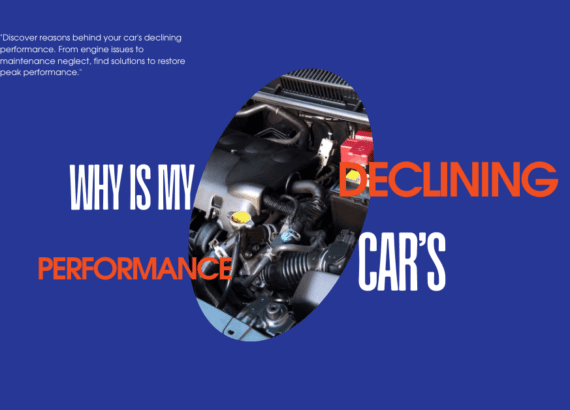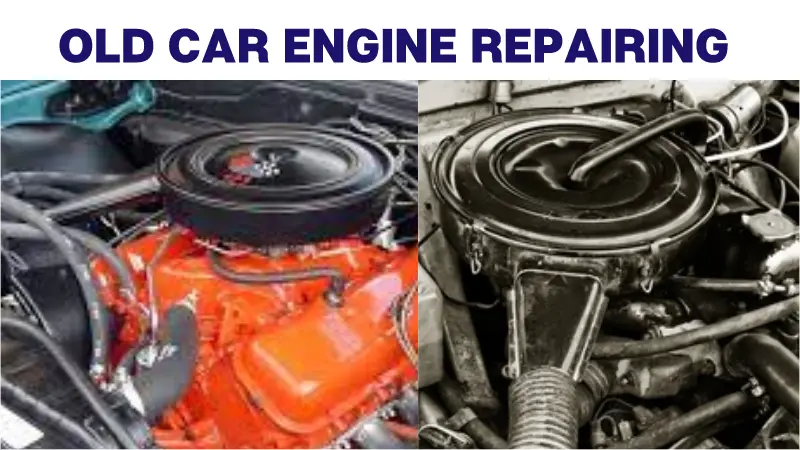Could You Build a Car from Scratch?

Anyone who’s ever sat back and wondered if building a car from scratch is possible—I’ve been there. Having navigated through the fascinating world of DIY car projects myself. I recognize that while the idea can be intimidating, with the right help and guidance, it is achievable.
Understanding the cost involved is critical; materials, tools, and unexpected expenses can add up quickly. Timescales are another consideration; unlike weekend projects, constructing a vehicle is a marathon, not a sprint, demanding patience and long-term commitment.
When thinking about taking on a car building project. It’s imperative to research practical routes—for example, starting with a kit car might be more manageable than fabricating every single component. Leverage the plethora of online forums and resources that offer step-by-step instructions.
This guide is not just about giving a nod to your ambitions. But about offering real, tangible methods that have worked for those before you. Progress might be complicated, but with essential tips and insights, the pathway to creating your own set of wheels can become a remarkable journey of personal achievement.
How Easy is it to Build a Car from Scratch?
If you think you’re ready to embrace such a challenge, you’ll quickly learn that it’s anything. But impossible, provided you’re prepared to seek out pro help along the route. Those with simpler aspirations might build a more basic model, steadily advancing their skills.
However, those embarking on this journey with less experience will soon discover . That the ability to follow detailed instructions is paramount. The willingness to invest not just money but also patience and persistence is critical. My own dabbling in automotive assembly has taught me that no manual can substitute. The valuable lessons learned with every bolt turned and wire connected.
Tips on How to Start a Car Build Project

Undertaking the Project: Start with a comprehensive plan to understand the scope of the project. Including space requirements, time commitment, and overall vision.
Mechanical Know-how: Gain or brush up on the necessary mechanical skills. or be prepared to hire professionals for more complex tasks.
Investment: Assess and secure the financial resources required, understanding that building a car demands a substantial monetary commitment.
Time Management: Allocate sufficient time for the project, recognizing that it will likely take longer than expected to complete.
Complexity Under the Bonnet: Prepare for intricate work by familiarizing yourself with the car’s engineering and potential complexities.
Boot Loads of Parts: Source high-quality parts, possibly second-hand, to match your budget without compromising on reliability.
Instructions: Follow detailed guides or manuals diligently, ensuring every step is executed correctly to avoid mistakes.
Experience Level: Leverage the knowledge of more experienced builders when needed, and use less experience as a learning opportunity.
Pro Help: Don’t hesitate to seek professional help when faced with challenges beyond your skill set.
Critical Thinking: Apply a problem-solving mindset to each step, anticipating issues and planning solutions.
Project Route: Decide whether to go for a simple design or a more complex model based on capability and resources.
Learning Curve: Embrace the educational aspect of the project, taking every challenge as an opportunity to improve your skills.
Seeking Guidance: Utilize forums, workshops, and automotive communities to get advice and share experiences.
Personal Dabbling: Get hands-on wherever possible to understand the intricacies of your car and gain practical knowledge.
Expert Conversation: Engage with car building experts and enthusiasts to gain insights, tips, and tricks to aid your build.
Maze of Complexity: Be prepared to navigate complex engineering and design puzzles, particularly if customizing aspects of the car.
Each bullet point includes keywords that are pertinent to the task of building a car from scratch. Designed to offer guidance and reflection upon the various facets of such an endeavor.
How Much Does it Cost to Build a Car?
Budget Planning for Car Build
Budgeting for a car build is akin to setting out on an unknown trail—exciting yet unpredictable. While you might have a vision in your head, pre-planning is paramount. In this arena, my own experiences dictate that the costs you anticipate are merely a starting line. When plotting your budget, every aspect of the project needs consideration. Think of it as a financial blueprint; it needs to be both comprehensive and adaptable.
Factoring in each eventuality is crucial. One minute you’re spending on tools, the next on equipment—and often on items you never knew you needed. Unexpected car issues tend to pop up, complicating your progress. So having additional cash ready in your back pocket for those out-of-the-blue expenses can be a lifesaver. It’s always better to be the person who anticipated unforeseen costs rather than the one blindsided by them.
Choosing to build completely from scratch or rebuilding an old model can vary your needed budget substantially. Take it from someone who’s been elbows-deep in both avenues; do not underestimate the investment. Wildly varying prices of parts and components can be a major hurdle. You may be able to source some materials cheaply, while others will necessitate you to open your wallet wide. Remember, the cost of renting a workshop or securing garage space must not be overlooked. There’s also the potential need to pay for professional help. Especially when facing complex aspects of the build that a YouTube tutorial can’t cover.
Cost Factors in Car Building
Diving into the building, from laying out the frame to polishing the bonnet. The number of cost factors can be overwhelming. Take garage space, for instance; this isn’t just an area to work but potentially a hefty line item if you’re renting. Your vision for the car greatly depends on how you choose to tackle the project, and each avenue comes with its unique price tag.
The thrill of the project comes with a whispering caution—the more you venture into customization, the higher the likelihood of your wallet feeling the pinch. Building from the ground up requires diligence in managing expenses, for there’s always that one last tool, that one elusive component that can slip through your carefully designed budget.
Remember, building a car isn’t merely a purchase; it’s an investment. And anyone who tells you they completed their project without a single hiccup or unexpected expense likely missed a number of reflections in their accounting. Even the most meticulously planned project faces its fair share of wild cards. It’s the nature of this beast, and why budget planning can be as dynamic as the building process itself.
Project fruition is a dance between expectation and reality. Whether you are completely building from scratch or rebuilding an established old friend, the mantra is to realize that fiscal surprises are part of the odyssey
How Long Does it Take to Build a Car?
Kit Car Route
For those who are intrigued by the allure of building their own vehicle, the kit car route stands as the quickest route to seeing your automotive dreams become reality. Imagine a giant model kit; instead of plastic pieces, you have actual car parts arriving in a box. This approach often comes complete with step-by-step instructions, laying out the pathway from a collection of parts to a fully functioning machine. The time it takes to put these pieces together generally offers a more predictable outcome than custom builds since you’re not typically waiting on outsourced parts—the project’s timeframe adheres closely to the efficiency and free hours at one’s disposal.
Timeframe Factors
In any car build, understanding the timeframe factors is critical. One must account for the project’s cost, the kind of car you’re aiming to build, your availability of free time, and the necessity to maintain a realistic timeline. Despite the best planning, unforeseen issues and setbacks are important to consider—they’re almost a rite of passage for the car builder. Whether it’s a delayed shipment of parts or an unexpected technical hiccup, these can significantly stretch the project’s timeline.
Non-Kit Car Challenges
From a timescale point of view, opting for a non-kit car route presents its own set of admirably ambitious plans. Whether rebuilding an old car or choosing to build a car from scratch, you’ll encounter challenges such as bodywork fabrication. These projects invariably rank among the longest to complete. Meticulous planning, drawing up blueprints, sourcing parts, tools, and accessories, as well as crafting or building complex components, all mark the treacherous path ahead.
For the aficionado willing to dive into time-intensive bodywork modifications or ensuring each classic car storage unique part fits together perfectly, the journey not only demands time but also the patience and skill to work safely and effectively. The testing of how different parts and components mesh can be both rewarding and arduous.
Variable Timescale
So, when asked about the timescale for a car build, it is truly dependent on a myriad of factors. Could you see a kit assembled within a week, a month, maybe? Alternatively, could a custom build stretch over a year or more? It’s all dependent on the type of car, the scope of the time you can dedicate, and those ever-present setbacks. It’s not just a mechanical exercise but a personal journey.
By now, I’ve seen builds that span the gamut of this timescale—from quick and precise kit assemblies to prolonged labors of love, infused with blood, sweat, and the occasional tear. Each turn of the wrench brings its lessons, each layered coat of paint its satisfaction. Whether building for sport or for show, the clock ticks at the pace of passion and precision, not simply the dialing hands of time.
Where to Go for Help and Advice on Building a Car?
The early stages of a car build can feel like piecing together a complex puzzle. When you’re set on the right path, though, even the most crammed under-the-hood spaces start to make sense. The key is to build a strong foundation of knowledge, and for that, you’re never too far from a wealth of resources. YouTube stands as an inexhaustible wellspring of inspiration—a place to learn and put together your metallic jigsaw. It’s where seasoned gearheads share their car building content, guiding you through every component with ease.
Moving on to web-based knowledge, Dedicated car build sites offer a haven where car lovers—a generous bunch indeed—love to share not just tips, but whole guides. Browsing through Top Speed or Popular Mechanics primes you with the free, end-to-end help. These sites and blogs, brimming with expertise, act as lighthouses guiding you through the journey of building your own car.
If it’s interactive guidance you seek, forums are where true wisdom gathers. It’s like talking through your car build with people who have taken on similar projects.
From discussing the best ways to solve problems to pushing your project to take things to the next level, getting involved in different car build forums gives you the idea of the realities of constructing a vehicle from the ground up. Here, you don’t just find advice; you join a community as enthusiastic about building your own car as you are.
Kit Cars Cost and Build Time
MEV Exocet
When the notion of building your own vehicle comes to mind, the MEV Exocet by Mills Extreme Vehicles stands out as a compelling choice for car enthusiasts. Priced enticingly at just £3,495, it’s often touted as one of the cheapest kits on the market. This affordability, however, doesn’t come at the cost of ingenuity.
Built around a Mazda MX5 serving as a donor car, the Exocet impresses with its clever design, which ingeniously integrates with the existing monocoque shell of the MX5. Remarkably, it takes a mere four hours to remove the unnecessary parts, a task that, while requiring meticulous following of instructions, is manageable even for those new to kit-building. With its Exocet bodywork falling into place, the finished product emerges as a beginner’s kit—a resources-light project that’s both rewarding and accessible.
AK Sports Cars
Have you ever dreamt of owning a vintage Jaguar but lacked a spare million in the bank to get your hands on the wheel of a Cobra or an XKSS? AK Sports Cars offers a gleaming beacon of hope to such dreamers, producing a handful of brilliant kit cars which serve as build-your-own variants of these classic Jaguars. The brand pitches diverse kit options to suit every potential builder’s budget and skill level. Enthusiasts can choose how to build their car, although some custom options may list their cost as POA.
Caterham
Deploying a more upscale strategy within the kit car market, Caterham was first among the ranks to elevate the concept of self-assembly cars to the mainstream. Its classic models have been notably featured on BBC Top Gear, a testament to their prestige.
Cater ham kit cars may sit at the pricier end of the spectrum, but the complete package they offer justifies the outlay. A full build could cost around , a figure that encapsulates both the expertise and quality for which the Cater ham team is known. Included are full assembly instructions, fostering not just the satisfaction of the build but the sheer pleasure of owning what many consider to view as one of the world’s best self-assembly cars.
Top Gear Magazine Caterham Assembly
Lastly, the topic of Cater ham took an interesting visual turn when Top Gear Magazine documented their own Cater ham kit car being assembled through a captivating time-lapse video. Performed within the confines of the Top Gear Magazine office, it provided a clear, albeit accelerated, insight into what builders can expect—from the point of unboxing to the moment the vehicle rolls out onto the road.
Conclusion
In conclusion, tangible proof that one can build a car from scratch exists in the many successful DIY projects and kit car assemblies dotting garages worldwide. While the journey is fraught with financial considerations, unexpected timelines, and the occasional complexity, it remains within the realm of possibility for those equipped with patience, a willingness to learn, and a solid support network.
Forums and instructional guides can demystify the process step by step, but it is the hands-on experience, intertwined with moments of personal dabbling and expert advice, that transforms a daunting venture into a feat of personal triumph. Whether beginning with an Exocet kit or piecing together a custom Caterham, the path to building your own car is as much about the joy and education of the process as it is about the final, road-worthy creation.
FAQs
Is it cheaper to build a car from scratch?
Unless you have all the major parts already intact, such as engine, transmission, drivelines, and cooling system, you will be out a LOT more money putting a car together out of scrap metal than you would be buying one. Also, you would not have a car that was nearly as safe to drive.
Is it legal to build your own car in us?
Homemade automobiles must be registered with the department of motor vehicles or a state agency in your area. After the vehicle passes inspection, the state will assign a VIN (Vehicle Identification Number) whether you’re titling a homemade car or any other vehicle that does not have a VIN.
How long does it take to build a car from scratch?
Have you ever wondered what the process of manufacturing a car looks like? From design to launch, it typically takes around two to five years to make a car from start to finish.
How hard is it to build your own car?
There are a lot of specific skills required to properly build a car. for someone with no background or equipment it is nearly impossible. For someone with a few years of experience, the hardest part is finding the space and time.











